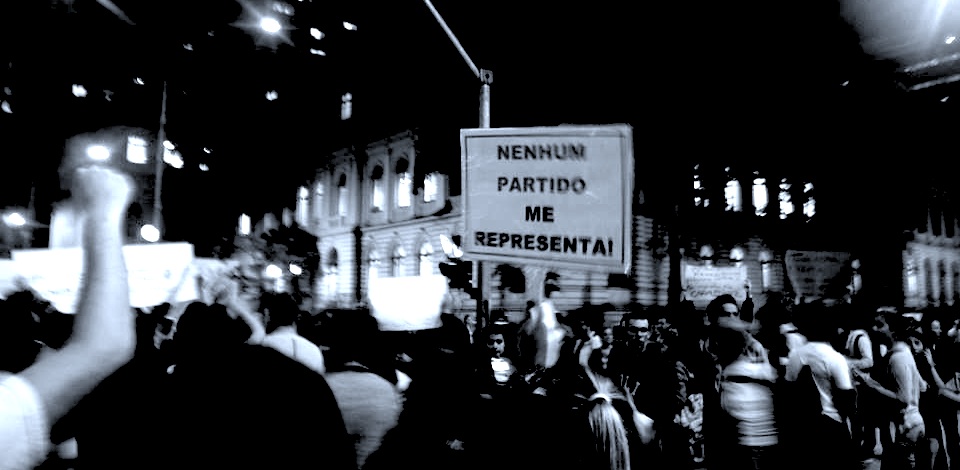4. The Informal Proletariat
The informal proletariat includes the semi-proletariat and the lumpen-proletariat, and it encompasses a wide range of heterogeneous groups. Informal workers do not own or control means of production, do not regularly produce standardized commodities, and are not routinely hired in structured labour markets; however, they may have limited means for the occasional production of commodities (unsophisticated tools, small plots of land, or a few animals). They tend to be domestic servants, unregistered street sellers, irregular (unskilled) workers, prostitutes, vagrants and criminals. Their survival strategies are normally based on occasional wage work (either irregular productive labour or work paid out of revenue rather than variable capital), informal exchanges, opportunistic engagement with the surrounding economy and reliance on transfers, which may be legal (state benefits or remittances from relatives), voluntary (charity) or involuntary (crime).
The dividing line between the informal proletariat and the (formal) working class has become increasingly permeable in ‘liberalized’ labour markets. One or two generations ago, the informal proletariat was (a) the condition of life of a relatively stable lumpen-proletariat, (b) a temporary holding station for aspiring formal sector workers who had fallen on hard times or recently migrated from the countryside, or (c) the provider of ancillary goods and services for capital. The pattern of accumulation under neoliberalism has largely fused the informal proletariat with the margins of the working class. Millions of semi-and lumpen-proletarians offer capital a readily available reserve of labour, which may be mobilized either directly, through the payment of wages or, in disguised form, as ‘independent’ micro-entrepreneurs (handymen, hairdressers, drivers, door-to-door retailers, home-based food producers, street sellers, and so on). The strong performance of the Brazilian economy in the 2000s led to the absorption of many informal workers into the formal labour market, but this has not changed their marginal position, where they can easily be deposited again when accumulation slows down.
The historical ambition of the informal proletariat is its own extinction, either through its absorption into the working class through formal employment, or into the middle class through entrepreneurship. Their heterogeneity, precarious economic position and self-destructive strategic aspirations suggest that the informal proletariat cannot normally articulate coherently an alternative mode of social organization, and it will rarely develop stable political alliances.
The informal proletariat has strong reasons to support the distribution of income and assets (especially land), the social provision of basic goods and services and government income transfer programmes, making it a natural ally of the working class around a pro-poor development strategy. In turn, the working class has a vital interest in the improvement of the lot of the informal proletariat, not only out of solidarity, but also to prevent the employers undercutting their pay and conditions. Nevertheless, because of its economic and social insecurity and inability to develop strong bonds of work-based solidarity, the informal proletariat tends to abhor political uncertainty and social ‘chaos’. They also tend to project their potential for political intervention onto external (possibly Napoleonic) figures, who may deliver their aspirations autonomously. This helps to explain the occasional attachment of the informal workers to authoritarianism including, most recently, its support for the rabid neoliberal Fernando Collor, who promised to protect the ‘shirtless’ while implementing a neoliberal programme that fleeced the entire working class.
The attachment of the informal proletariat to the neoliberal reforms was not due primarily to their ‘idiocy’ or powerlessness: the informal proletariat can benefit directly from the lower cost of living due to the imposition of orthodox policies to secure low inflation and, similarly, from the overvaluation of the exchange rate, which cheapens imported consumer goods; it can also gain from the expansion of credit associated with financial liberalization and larger inflows of foreign capital, regardless of their adverse implications for (a remote prospect of) stable employment. The support of the informal proletariat to authoritarian and socially regressive neoliberal policies may also include a generalized rejection of state intervention which, allegedly, benefits the ‘insiders’ – corrupt politicians, oligopolistic entrepreneurs, formal sector workers and civil servants – against such ‘outsiders’ as themselves. This is, evidently, a self-defeating strategy in the long term, since inflation control and the reduction of state capacity to intervene in the economy benefit primarily the rentiers, whose financial gains are secured, and the large capitalists, who can easily move to new economic sectors. In turn, cuts in public services can divide the broad working class, remove an important platform for democratic economic and social change, and dismantle two of the best organized segments of the working class: the civil servants and the employees of SOEs.
The social and political contradictions enmeshing the informal proletariat tend to create considerable difficulties in their social organization and mobilization, and lead to volatile political attachments and infrequent, but explosive, mobilizations. For example, these social groups have been associated with the destruction of buses and train stations following tariff increases in Brazil since the 1940s. Nevertheless, the lasting success of the Landless Peasants’ Movement (Movimento dos Trabalhadores Rurais Sem Terra, MST) demonstrates that certain fractions of the informal proletariat can be consistently organized, disciplined and radicalized.

